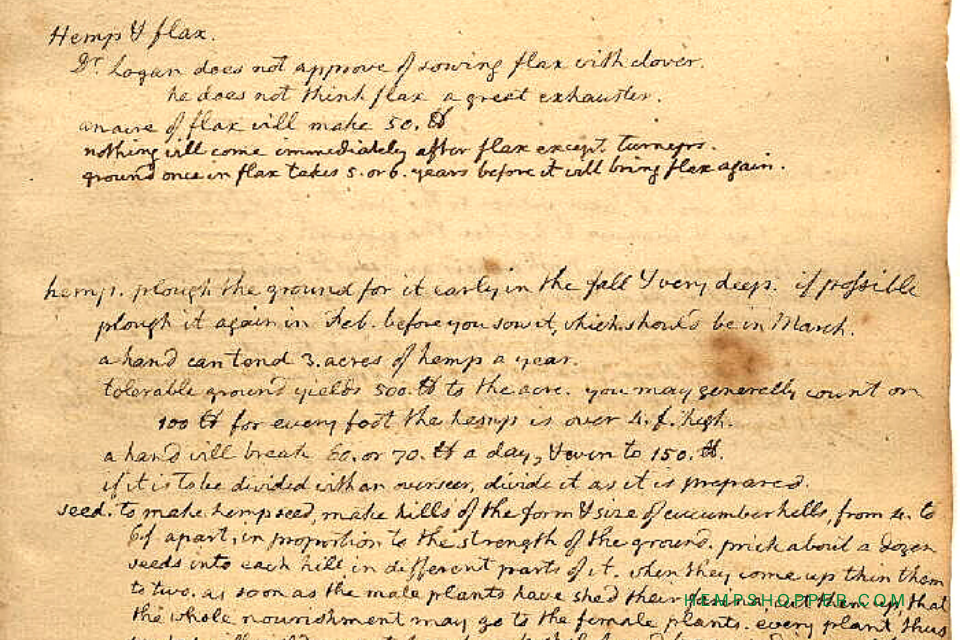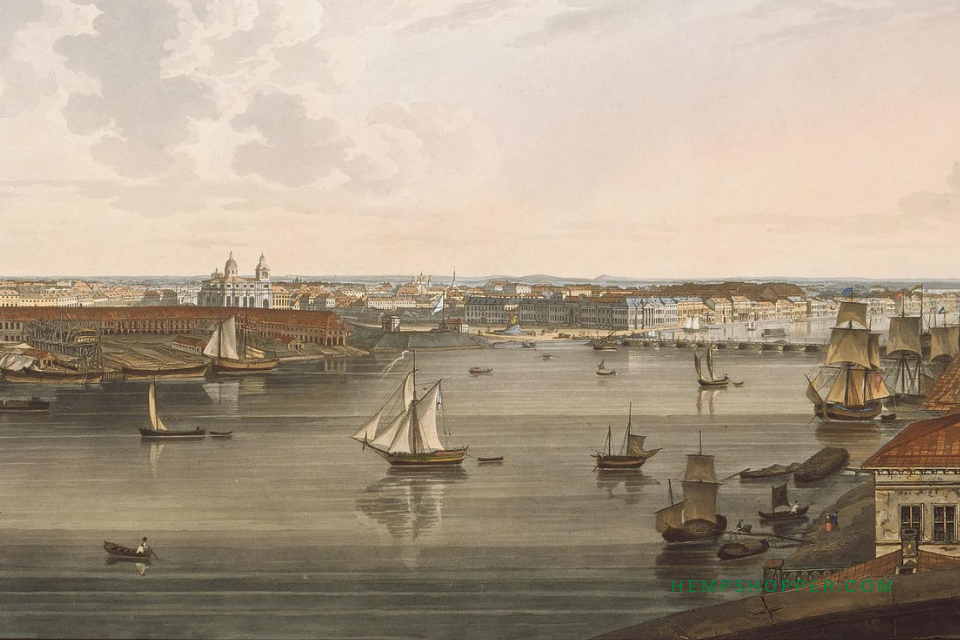1807: Napoleon tries to cut off Russian hemp trade with Britain

1807: Napoleon tries to cut off Russian hemp trade with Britain
In July 1807, Napoleon I of France and Tsar Alexander I of Russia signed the Treaties of Tilsit in the town of Tilsit. This treaty ended the war between Imperial Russia and the French Empire. It also initiated an alliance between the two empires, rendering the rest of continental Europe almost powerless.
Moreover, the two countries secretly agreed to support each other in disputes. The treaty created an alliance between Russia, France, Prussia, Denmark, and others. Consequently, they were forced to sever all ties, mainly trade and commerce, with England. This was an attempt to isolate England from Russia. [1,2]
England was deeply concerned about securing a steady supply of hemp because it was crucial for maintaining its naval superiority. Hemp was used extensively in the Royal Navy for making ropes, sails, and caulking for ships. These materials were essential for the construction, maintenance, and operation of naval vessels. Hemp’s natural resistance to rot and its strength made it ideal for maritime use, especially in the harsh conditions at sea. [3]
Top importer of industrial cannabis.
At that time, Russia was the world’s main exporter of hemp, which was one of England’s most vital commodities. [1]. There was no satisfactory alternative source to Russian hemp. Russia supplied well over 90 percent of the navy’s requirements, making England the top importer of industrial cannabis.
The flourishing Russian economy and stable hemp trade with England posed a significant threat to Napoleon’s France. Through the Treaties of Tilsit, Napoleon sought to gain control of the international hemp trade and market. [1] Without a reliable source of hemp, the British Navy would struggle to keep its ships in good condition, which could jeopardize its ability to protect trade routes and maintain its global influence. This is why England was so focused on ensuring a steady supply of hemp, even going as far as to mandate its cultivation in its colonies.
Although the treaty was signed by both parties, the Tsar did not enforce it. Russia couldn’t keep its promise because much of its economy depended on trade with Britain. This led to the flourishing of clandestine trade with Britain.
Strategic importance
Interestingly, 135 years later, industrial cannabis remained so vital for the war effort that during World War II, the U.S. government urged farmers to grow hemp due to a shortage of imported fibres needed for ropes, tents, and sails. This historical reliance on hemp highlights its strategic importance dating back to the Napoleonic era. [4]
Sources: 1.MURRAY, John T.(1943): Baltic Commerce and Power Politics in the Early Eighteenth Century. Huntington Library Quarterly, Vol. 6, No. 3, pp. 293-312. 2.O’ROURKE, Kevin H.(2006): Journal of Global History: The Worldwide Economic Impact of the French Revolutionary and Napoleonic Wars, 1793-1815. London School of Economic and Political Science 2006. pp.123-24. Photo : Painting at Palace of Versailles, Treaties of Tilsit. Meeting of the two emperors in a pavilion set up on a raft in the middle of the Neman River. 3.MALONE, Joseph J. : England and the Baltic Naval Stores Trade in the Seventeenth and Eighteenth Centuries, published November 1972. 4.HIGDON,James (Politico): Legal Marijuana's Big Moment, published April 24, 2018. Research and text © Hempshopper Amsterdam. Read more >> 1812: Cannabis caught in wars between the superpowers


 Hempshopper Amsterdam
Hempshopper Amsterdam 






